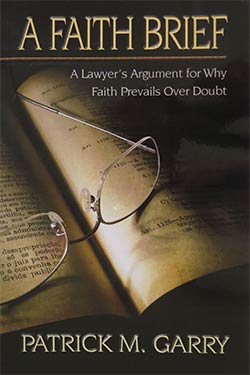What was once known as the West—Western Europe and North America—has largely abandoned its Christian roots and fallen into apostasy. In fact, it has succumbed to neopaganism—a practical atheism that, similar to 18th-century Deism, relegates God (if He exists) to a peripheral role in one’s life. People in increasing numbers do not believe it is rational to believe. The gods of technology, medicine, material security, and entertainment have largely replaced American denominational Protestantism, which fell victim to the cultural explosion of the 60’s. Since then, denominational membership has plummeted year after year among evangelical Protestant groups who cling with good will to their Bibles and born-again encounters but are not stable. They have revolving ministers, no sacraments except baptism, and no solemnity of worship, often congregating in what appear to be aircraft hangars. Such churches give no sign of the potential to create a culture whose hallmark is Beauty, a sign of God’s presence.
A Faith Brief: A Lawyer’s Argument for Why Faith Prevails Over Doubt, by Patrick M. Garry, a law professor and novelist, explains the situation. “This book is about faith,” Garry writes. “Actually it is a book about finding faith despite an immersion in a life and culture of doubt, and about by first finding a way to dispel the doubt.” Nondenominational in approach, it relies predominantly on philosophical and reasoned arguments to plead its case. Although the dust-jacket blurbs seem all to have been written by Catholics, A Faith Brief does not work to convince the reader by authority or revelation; rather, its aim is to detach the reader from a state of skepticism. As the author puts it,
This book is about the struggle to detach oneself from doubt, as well as the rewards and realizations that occur when that detachment is made. It is also a book about experiences—the experience of realizing that doubt is a false god: of finally seeing when the blinders are removed. The experience of finding faith and knowing the truth when it is found.
With lawyerly precision, Garry guides his reader along steps to overcoming religious doubt in order to make the case that, if we truly seek God, He will make sure we find Him. Garry rightly suggests the importance of prayer—not only rote oral prayer but silent, contemplative prayer, mental prayer. And he emphasizes learning how to listen. Garry quotes C.S. Lewis’s reminder in Mere Christianity that, “the more we get what we now call ‘ourselves’ out of the way and let [God] take us over, the more truly ourselves we become.”
The only way to establish whether Patrick Garry’s “faith brief” can win its case for belief is to purchase the book and try what he suggests with a family member or friend who is an atheist, cynic, skeptic, or nonbeliever. I myself have played a small role in the conversion of dozens of people to Catholicism, all of them intelligent and well educated. Most important, however, was their openness to believe given the evidence that had been presented to them, their willingness to accept the veracity of the Gospels, and—of course—the long history of saints who in their own ways imitated Christ. For men to believe in a benevolent God, they need an introduction to serious Christians whose love of God has impelled them to follow Him heroically.
This book is a fine primer for anyone open to God and Christianity. It admirably prepares the ground for refugees from doubt to move on to the heavyweights, including Newman, Pascal, C.S. Lewis, G.K. Chesterton, and Ronald Knox. And let us not forget Pope Emeritus Benedict XVI, whose trilogy on Jesus is perhaps the best and most accessible work to make the case that Christ is Who He claimed to be.

Leave a Reply